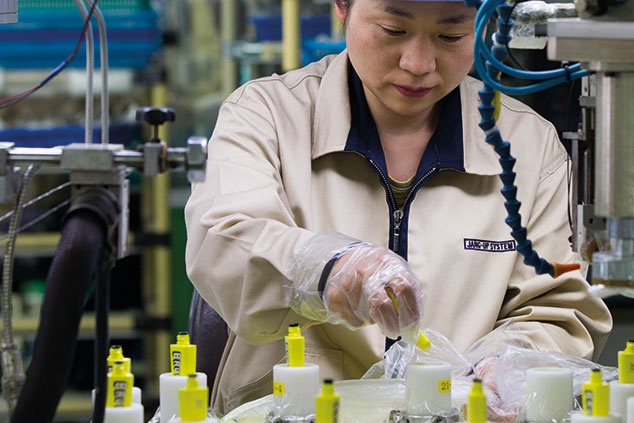
One of the few big opportunities in global markets is Japan’s small-cap value sector. And now there is finally a fund that focuses directly on this niche, says Merryn Somerset Webb.
We have been telling you for years that you need to get into one of the very few compelling opportunities left in global stockmarkets: small but cash-rich value stocks in Japan. But we haven’t been able to point you to an investment vehicle dedicated to doing this and only this. Several larger global funds have recognised the value opportunities in Japan. In the world of investment trusts, think Ruffer, the Scottish Investment Trust and British Empire, for example.
Private equity is increasingly active in Japan (looking to take languishing companies private) and there is the odd fund devoted to large-cap value, Man GLG Japan Core Alpha being an example. And there are plenty of small-cap funds focused on Japan, some of which have a clear value bias.
But the AVI Japan Opportunity Trust, to be launched next month, will be the first we know of to focus entirely on smaller companies that generate profits and free cash flow, pay dividends, and “happen to have large amounts of spare cash sitting around on their balance sheet or holdings in other listed companies”, says manager-to-be Joe Bauernfreund (also manager of British Empire Trust). They also, of course, trade on “extraordinary undervaluations”. I met with Bauernfreund to discuss the opportunity.
The first and most obvious question: when most of the world appears overpriced, why the undervaluation in this niche area? Several reasons. First, these stocks are barely covered by the market. Of the ones Bauernfreund is looking at, 78% are covered by two or fewer brokers and 56% are analysed by none.
They are “a million miles away from Tokyo, psychologically and physically, as well”. Second, investors have traditionally ascribed little value to the equities and cash on these balance sheets because they knew the value would never materialise – cross-shareholdings held for historical reasons were rarely sold and cash was practically never given up in dividends. Japan’s corporate sector (unlike most of the West’s) has always put shareholders at “the bottom of the pecking order”: employees, customers, suppliers and the perceived needs of society have always come first.
Of the 4,000-odd listed companies in Japan, some 400-500 have the equivalent of 30% of their market capitalisation sitting in cash. About half those are of no interest to Bauernfreund. Their operating businesses aren’t worth holding (the cash is being run down every year and therefore should be valued at a discount). However, that still leaves a substantial number that aren’t “value-traps” – those that “are operating good businesses, growing their profits, and have very substantial cash”. Buy the portfolio Bauernfreund has in mind and you’ll not only get their businesses cheap (particularly when you strip the cash out), but you’ll get paid a dividend yield of almost 2%. That – for value investors – is interesting in itself.
Discount controls at a discount
The AVI Japan Opportunity Trust will come with “robust discount controls”, says Bauernfreund. You will be able to ask to exit your holdings at the net asset value of the fund after four years and then every two years after that. The trust will also buy back shares if the discount exceeds 5%. Management fees will be 1% a year, but AVI says it intends to put 25% of the fees it receives back into the trust (either by issuing new shares in lieu of the 25% share, or buying shares directly with it).
But there is also some “icing on the cake”, says Bauernfreund, in the form of corporate governance reform and shareholder activism. The new corporate governance code put in place five years ago has finally started to encourage both domestic and foreign investors to force boards to focus on balance-sheet issues – to recognise that they aren’t ever going to need all the cash they are hoarding, for example. “You can buy into good-quality companies on cheap valuations, you can take a position, engage with the board, try to drive change.”
Take A-One Seimitsu, a specialist manufacturer of lathes. It has a market cap of around ¥7bn, but also net cash of the same value. So buy the shares and you effectively get the perfectly good business for free (and a 2.8% dividend). If the firm is open to engagement (not all are) and can be persuaded to buy back some shares or start paying out special dividends, the share price could rise very fast.
However, the odds of success in Japan are higher, suggests Bauernfreund, for those who take constructive baby steps in the right direction rather than pushing for sudden change, US hedge-fund style. So getting independent directors on the board, or persuading management to own some shares in the business so their interests are aligned with those of shareholders, would be useful first steps. This “is not going to get dealt with overnight”. Japan’s smaller companies, run by salaryman lifers with no outside directors to answer to, aren’t going to get corporate-governance religion just like that. “It’s a process.”